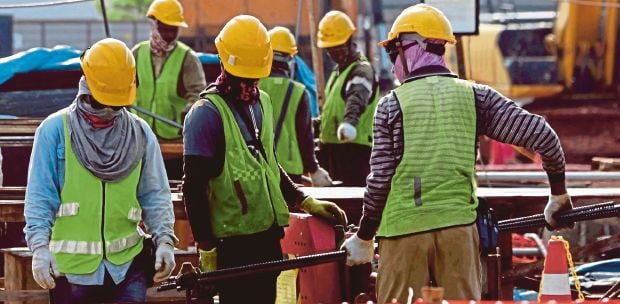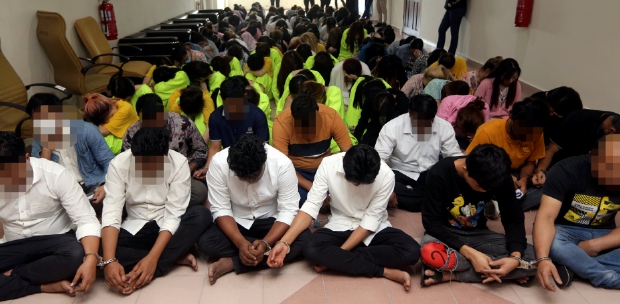Malaysians like to frequent mamak food stalls for roti canai and teh tarik. Some go for nasi kandar.
Since they are mostly open for 24 hours, they have become popular haunts among all Malaysians, young and old.
We also look forward to their fast service, not having to wait too long for the food. Things have, however, changed lately. The service has been slow and some have shortened their opening hours.
Worker shortage is much to blame. The mamak restaurant business has been reliant on foreign labour all these years. With the current labour supply problem, it is inevitable that the service suffers a lot.
Some try to resort to some form of robotics and automation. They have not worked well though. The labour problem started during the pandemic, when foreign workers had to return home.
Bringing them back after the pandemic has been a struggle. Many other sectors are facing a similar dilemma. Some highway construction projects have been delayed because of lack of labour.
These include the SUKE highway, which is supposed to disperse traffic away from the city centre.
The new MRT projects have also not been spared from the labour-related disruptions.
Such delays have inevitably led to cost overruns. But, one sector that has constantly hit the headlines because of labour shortage is the plantation industry.
Palm oil is especially hard-hit because the labour problems arose while the world palm oil prices have reached historic highs. It has been reported that the losses due to unharvested fruits run into billions of ringgit.
Smallholder oil palm farmers are the ones most badly affected. They are very much dependent on the income from their oil palm harvests.
Most of them are crying instead of laughing to the bank, as they did in the past when palm oil prices hit the roof.
There have been attempts by the government to bring in workers from outside. But they have somehow not materialised. There were talks about agreements being signed with countries which supply workers.
But as yet, there is still no sign of the workers, which the affected sectors desperately need, arriving. The oil palm sector has for years relied on workers from neighbouring Indonesia to work in the plantations.
Apparently, they prove to be the ones who are the most efficient at harvesting oil palm. Admittedly, oil palm harvesting is the most difficult job in the plantations. It can also be very dangerous.
Any wrong move can land that 30kg fruit bunch on your head with fatal consequences. No wonder locals shy away from such jobs. And not all foreign workers can do the job as efficiently as those from Indonesia.
Workers from Bangladesh are mostly deployed in the construction and manufacturing sectors.
Experts say there are many reasons why it is harder now to source for migrant labour. One has to do with the fact that countries that have been actively supplying workers in the past no longer have enough labour to spare.
As a result of their own economic progress, employment opportunities in their countries have jumped. That, coupled with the much better pay their own domestic jobs offer, has discouraged many from venturing off shore. It also makes a lot of sense.
Why leave the comfort of your own home where you can enjoy similar if not better livelihood than in a foreign land? This is what has contributed to the decline in the arrival of workers from Indonesia for the plantations sector.
The plantation jobs in Indonesia are not only aplenty, but they also pay well. Gone are the days when they can earn more in Malaysia. Looks like we are running out of places to source for foreign labour.
Even Vietnam has achieved prolific progress in its economy. They also shy away from 3D jobs.
With the rise in foreign direct investments into their country, Vietnam is witnessing a rise in their middle-class. Even Cambodia is also following a strong path of economic progress, therefore no chance to import labour.
We have no choice but to continue developing high-value, less labour-intensive industries. Going digital looks inevitable for the country.
The writer is a professor at the Tan Sri Omar Centre for STI Policy, UCSI University
The views expressed in this article are the author's own and do not necessarily reflect those of the New Straits Times





